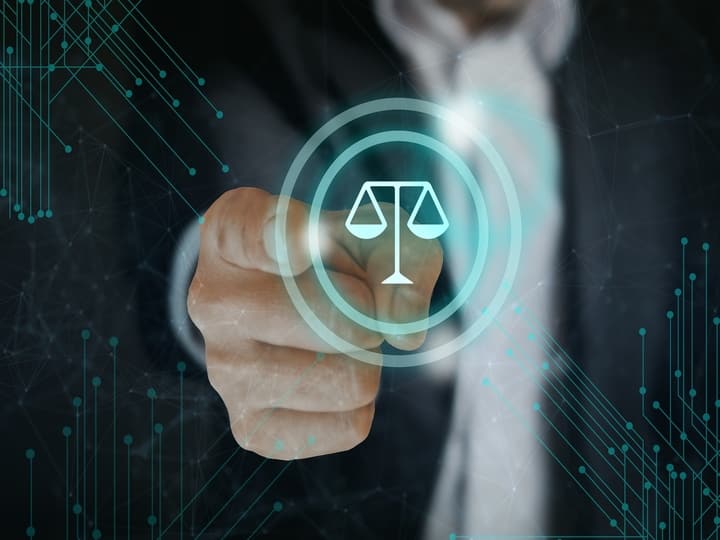
Legal Framework of E-commerce business in Egypt
E-commerce can be defined as a system of buying and selling goods, services, and products using Internet and transferring money and data to carry out these transactions. It is usually used to refer to the sale of products and goods on the Internet, but it can be described by any type of transaction. E-commerce can be used to make time and money easier for both: distributors and consumers, and there are many platforms that work in the field of E-commerce such as Jumia, Amazon …etc. and other...

Egypt: Difference between branch and subsidiary
Investment climate in Egypt is abundant with investment opportunities that support investors. In addition, many legal forms allow investors to launch the investment process expeditiously and smoothly. In this article, we will clarify the most significant differences and aspects of variance between the branches of foreign companies incorporated within the Arab Republic of Egypt and subsidiary companies. Read more...

COMPETITION PROTECTION IN EGYPTIAN LAWS
COMPETITION PROTECTION AND MONOPOLISTIC PRACTICES IN EGYPTIAN LAWS AND REGULATIONS: The Arab Republic of Egypt aims to guarantee a good economic environment that does not restrict, prevent or damage the freedom of competition and issued Law No. 3 of the year 2005 regarding the issuance of Competition Law to seek the aim of competition protection and prevent monopolistic practices. The Law grants a free and honest competitive environment in which all persons working in the market abide by the...

Legal controls for the use of “Drones” in Egypt
Lately, drones have played multiple roles away from their military uses, as the technological development of drones has led to the expansion of their use in civil and commercial purposes by several companies in different countries. Read more...

Registering Digital Business in Egypt
Egypt shows enormous interest in introducing digital transformation to the national economy aiming at realizing rapid development and enhancing the Egyptian society. That is why the Egyptian government encourages and supports the atmosphere of investment and digital business through taking measures to develop this sector and to reduce the problems that may arise in this field. Significant legislations covering this subject can be further elaborated as follows: Read more...

Distribution versus Agency Agreement as applicable to pharmaceutical industry
Pharmaceutical sector of Egypt is one of the oldest strategic sectors in Egypt which has managed to reach an important measure to achieve self-sufficiency of the Egyptian medicine. The main competent authority responsible for managing pharmaceutical industry in Egypt is the Egyptian Drug Authority (EDA), which in its role has adopted policies targeting drug development in various stages of the industry, both in the field of pharmaceutical raw materials, basic chemicals, manufacturing and...

Overview on the Consumer Finance Companies in Egypt
The Financial Regulatory Authority in Egypt (“FRA”) is taking a positive step towards developing the non-banking financial services sector that can be clearly seen by issuing the new Consumer Finance Law No. 18 of the year 2020 and the FRA’s Decision No. 56 of the year 2020 concerning the Consumer Finance activities. Read more...

New Restriction on Arbitration Clauses in State – Foreign Investor Contracts
In order to improve the Egyptian status with regards to the international arbitration disputes, in which the state is party of whether wholly or partially, the Egyptian Prime Minister has issued a new Decree No. 2592 of the year 2020 (hereinafter referred to as the "New Decree"), which fundamentally and ambiguously amended the provisions of the Decree No. 1062 of the year 2019 on organizing the Supreme Commission to study and provide opinion on international arbitration cases, in which the...

Overview on the Legal Considerations of Construction in Egypt
Recently, Egypt has witnessed a remarkable increase in the number of construction companies and their activities regarding infrastructure and real estate development, and Egypt has declared its need for private investment to take a larger role in this sector. Read more...

Registration in the Egyptian Federation for Construction and Building Contractors
Egypt has one of the largest construction and building sectors in the MENA region, making it one of the most important factors that increases the county’s GDP. Prior to 1992 there was virtually no integrated organization in Egypt to sponsor and manage the profession or the industry making it accessible for companies and individuals with limited experience to participate. Read more...

Egypt: Clarifications on the free zones fees
Free zones are established in order to magnetize the investors via its prominent and premium investment system. As it provides the investors with safeguards and several benefits and incentives related to the goods and their in or out movements without having the hustle to deal with customs, import, export systems and any other investment related procedures, whereas the investor has taken the initiative and invested his money and efforts under the aegis of the free zone system. Read more...

Egypt Regulation: KYC compliance
Know your Customer (KYC) is a principle that states that “Every bank or broker-dealer shall use reasonable diligence, in regard to the opening and maintenance of every account, to know (and retain) the essential facts concerning every customer and concerning the authority of each person acting on behalf of such customer.”[1] This principle is used to avoid fraud and ambiguity. Read more...

Trial Proceedings in Criminal Cases before Egyptian Courts
Trial proceedings in criminal cases before the Egyptian courts are regulated by the Criminal Procedure Law No. 150 of 1950 and the amendments thereof. Before introducing these proceedings, criminal case and crime in brief are: Read more...

Egypt: New Law regarding the development of Medium, Small and Micro Enterprises
As part of the state’s efforts to encourage the Egyptian economy, the Egyptian President issued Law No. 152 of the year 2020 regarding the development of the medium, small, and micro-enterprises. Read more...

Between Force Majeure and Hardship, where does Covid-19 stand?
Following rapid spread of the novel coronavirus “Covid-19” that was first reported in the province of Wuhan, China in December, 2019, on 11th of March 2020, the World Health Organization declared Covid-19 to be a pandemic. Read more...

The Practice of Adjournments and Tactics: Delay of Justice in Egypt
Delay in the litigation process has become a global issue and Egypt is no exception. It has been exacerbated in Egypt in the last few years; whereas its issues have increased to the extent that the situation has reached a point that some disputes and cases extend for several years inside the Egyptian courts, and dozens of cases, some of which exceed a thousand paper, have piled inside the corridors of courts, and this is the reason behind the inquiries and astonishment of citizens concerning...

Non-Performing Assets: The Role of Banks and Financial Institutions in Egypt
On 16 March 2020, in response to the socioeconomic disruption caused by the global coronavirus (COVID-19) pandemic, the Central Bank of Egypt (CBE) issued a circular which put in place a moratorium on all repayments under existing credit facilities for a period of six months. Read more...

Egypt: CORONAVIRUS COVID-19 ‘s Effect on workflow
CORONAVIRUS COVID-19 's Effect on workflow (Employers and Employees) :On 11th of March, 2020, WHO Chief Dr. Tedros Adhanom Ghebreyesu had declared COVID-19 CORONAVIRUS as a pandemic, and the definition of Pandemic is a disease that is spreading in multiple countries around the world at the same time. Read more...



